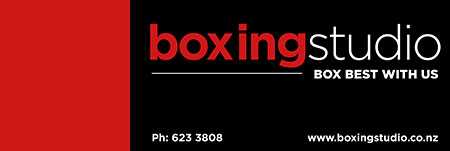Boxing is one of the best ways to stay fit and in shape as it burns a lot of energy. If you are taking up boxing to compete or training regularly here is some information on the ideal boxers nutrition.
Preferably you should choose unrefined versions (brown rice, pasta etc) as the energy in these unrefined foods is released more slowly than in refined foods. You can get away with some cereals such as weetbix, shredded wheat or muesli. All these carbohydrates will be released slowly, maintaining blood sugar levels.
Another good way of slowing the metabolism of carbohydrates down is to eat lots of green vegetables as they are high in fibre and also contain a vast array of vitamins and minerals. Brown versions of bread, rice and pasta also contain much greater quantities of fibre than the white versions.
Stay away from sugary foods such as cereal bars, sugary breakfast cereals (such a conflakes or nutrigrain), white bread, fruit juices (eat the piece of fruit instead!).
If you need to lose weight, as a general rule, reduce the amount of carbohydrate in your meals and increase the vegetables and protein. Instead of having a sandwich with two slices of bread, have a salad with a piece of chicken and one slice of bread on the side. Instead of having a big bowl of pasta with some sauce, have a chicken breast (or piece of fish or steak etc) with a large portion of vegetables and a much smaller serving of pasta, rice or potato. It can help to avoid combining fat with carbohydrates and have fat only with protein or vegetables (rice, pasta, bread, and potatoes tend to soak up fat and mean you can stomach far more!).
Don't cut out the carbohydrates all together, you need them for energy and fibre. If you are training hard make sure you are getting enough complex carbohydrates. A bowl of porridge made with rolled oats, seedless raisins and a sprinkling of sunflower seeds (or other nuts) can be a great foundation for the day.
Eat smaller meals more often.
Water
Your body is 70% water and you lose a lot during training sessions so don’t forget to increase your intake if you are training hard!
Do not think water will make you put weight on. The more you drink the more you will urinate and sweat, getting rid of all the toxins in your body.
Where Energy Comes From
Food energy is made up of protein, carbohydrates and fats. The amount of energy in each of these types of fuel is measured in calories.
1 gram of protein = 4 calories
1g of carbohydrates= 4 x calories
1 gram of fat= 9 calories
Carbohydrates and fats are the main sources of fuel your body turns in to energy but if you eat more carbohydrates and fats than your body needs for energy it will store the excess as body fat.
Protein is primarily used by the body to repair and make muscles stronger. Protein is digested more slowly than carbohydrates and its energy is released more slowly, meaning a meal high in protein tends to make you feel full for longer.
Alcohol
In addition to carbohydrates, protein and fat, alcohol is the only other source of nutritional energy or calories (7 calories per gram) but has no other nutritional value and is therefore "empty calories" and can quickly add up!
When you consider that the normal recommended number of calories for a woman each day is 2000 and a bottle of wine contains around 600 calories, you can see that alcohol can be a significant inhibitor to weight loss.
Losing weight- some common mistakes
Cutting out meals or embarking on a very low calorie diet is not the way to lose weight, especially if you who want to train hard, increase fitness and grow or repair muscle. If you eat too few calories your body \ switches into survival mode and tries to keep its stored energy (body fat)
The best way to lose weight is to cut back on carbohydrates and fats so that your body looks only to fat reserves and not to breaking down your muscles to supply the extra calories it needs.
Eat smaller meals – The body will not use all the calories in one big meal and will convert the excess to fat. If you eat smaller meals more regularly, the body is more likely to use the energy available from the meal for it's immediate energy needs and will not need to store the calories as fat.
Simple sugars and refined carbohydrates - There are two types of carbohydrates, one complex (slow release) the other simple (fast release). These get converted to blood glucose. Their energy value is the same but simple carbohydrates are released very quickly into the blood stream, elevating blood sugar levels. As your body cannot cope with excessive blood sugar, it releases a hormone called insulin. Insulin's job is to take that sugar out of the blood but as sugar is energy the body will not waste it so it converts it to body fat for future use.
The only carbohydrates you should eat are complex carbohydrates such as potato, pasta, whole grains, rice, beans , pulses (eg lentils, chick peas etc) rolled oats
